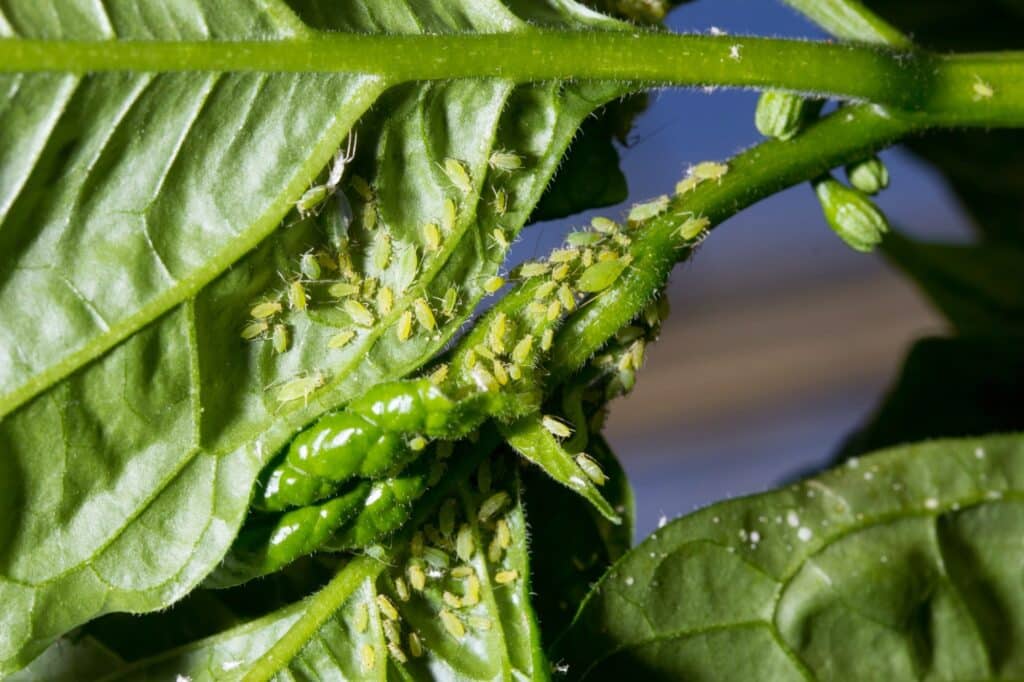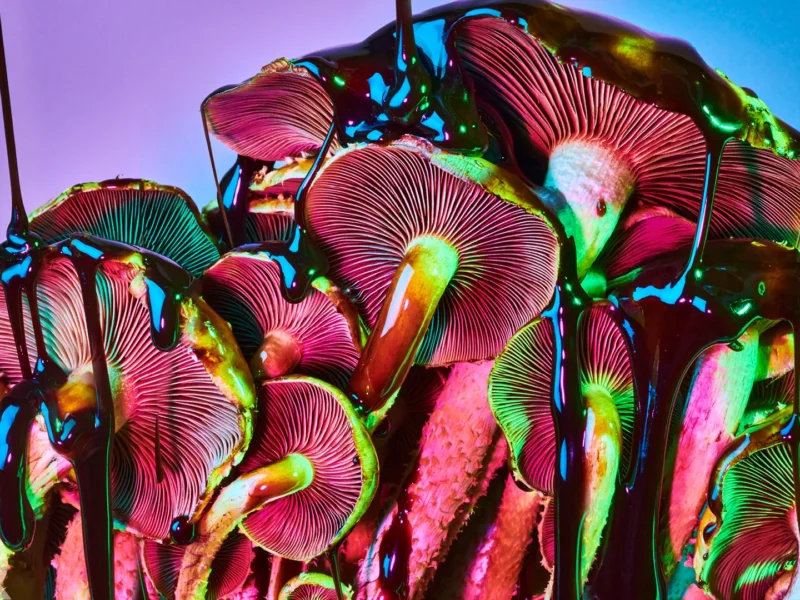
How To Repel Aphids On Pepper Plants Using Natural Solutions
Aphids can pose a significant threat to pepper plants, causing damage and impeding their growth. Aphids feed by sucking the sap from leaves, buds, and young shoots of plants. They secrete honeydew, a sticky, sugary liquid that attracts ants and promotes the growth of a fungus called sooty mold. They can cause leaf curling, deformation of young shoots, and yellow or brown spots around the feeding sites. Fortunately, there are effective methods available to treat aphids and protect your pepper plants.
1. Early Detection and Monitoring
Regularly inspect your pepper plants to identify signs of aphid infestation. Look for clusters of small insects on the leaves, stems, and buds. Check for sticky residue or the presence of ants, as they are often attracted to aphid honeydew. Detecting the infestation early enables easier and more successful treatment.
2. Manual Removal
If the aphid population is low or localized, manual removal can be an effective method. Wear gloves and gently squash the aphids between your fingers or use a soft brush to dislodge them from the plants. Pay close attention to the undersides of leaves, as aphids tend to hide there.
3. Water Spray
Using a strong stream of water can help remove aphids from pepper plants. Use a hose or a spray bottle to direct water onto the affected areas, especially the undersides of leaves. This method physically dislodges the aphids, reducing their numbers and hindering their ability to feed on the plants.
4. Insecticidal Soap
Insecticidal soap offers a safe and eco-friendly option for controlling aphids on pepper plants. Choose a soap specifically formulated for plant use, as household soaps may contain harsh chemicals. Dilute the soap according to the instructions and spray it onto the affected plants, ensuring thorough coverage. The soap works by suffocating the aphids without harming the plants.
5. Neem Oil
Neem oil, derived from the neem tree, serves as a natural insecticide that is effective against aphids and other pests while being safe for plants and beneficial insects. Mix neem oil with water and a few drops of dish soap to enhance its effectiveness. Apply the solution to the pepper plants, paying particular attention to areas where aphids are concentrated.
6. Companion Planting
Certain plants act as natural repellents or attract beneficial insects that prey on aphids. Consider interplanting your pepper plants with marigolds, nasturtiums, or garlic. These plants can help deter aphids and create a more favorable environment for beneficial insects like ladybugs and lacewings.
7. Biological Control
Introducing natural predators of aphids, such as ladybugs or green lacewings, to your garden can provide biological control. Metarhizium anisopliae and Beauveria bassiana are natural fungi that can be used as biological controls against aphids. These fungi infect and kill aphids, helping to reduce their population.
They are non-toxic to humans, pets, and beneficial insects. Unlike chemical pesticides, Metarhizium anisopliae fungi specifically target aphids and do not harm other beneficial organisms present in your garden. Once applied to the plants, the Beauveria bassiana fungal spores remain active, providing continuous protection against aphids for an extended period. This long-lasting effect ensures ongoing control and reduces the need for frequent reapplication.
Effectively treating aphids on pepper plants requires a proactive approach and a combination of methods. By regularly monitoring your plants, manually removing aphids, using water sprays, and employing eco-friendly treatments like insecticidal soap or neem oil, you can successfully treat aphid infestations and protect your pepper plants. Additionally, practicing companion planting and introducing beneficial insects will promote a healthy garden ecosystem. With these measures in place, you can enjoy thriving pepper plants that are free from aphid damage.







